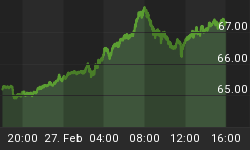While the Fed has recently released an unprecedented amount of information on its activities, there is still much that remains unknown. Predictably, every push towards transparency has been fought tooth and nail. It took disclosure requirements enacted within the Dodd-Frank Act to get the Fed to provide data on its emergency lending facilities. It took lawsuits filed by Bloomberg and Fox News to provide data on discount window lending during the worst parts of the financial crisis. And it will take further concerted action on the part of Congress, the media, and the public to keep up pressure on the Fed to become and remain transparent.
Transparency is not a panacea, however, as a fully transparent organization is still capable of engaging in all sorts of mischief. Ironically, one of the Fed's more egregious recent actions, adopting an explicit inflation target, was hailed by many as another wonderful example of transparency. Yet if you think about what this 2% inflation target actually is, you realize that it is an explicit policy to devalue the dollar and reduce its purchasing power. And it adds up quickly over time. Two percent annual price inflation means that prices rise 22% within a decade, and nearly 50% within two decades.
It is worse than that, however. This explicit 2% target also fails to take into account that whatever measure is used to determine price inflation, be it CPI, core CPI, PCE, etc., will always be chosen with an eye towards underreporting the true rate of inflation and price rises. Pressure will be exerted on those calculating the price indices, so as not to alarm the public when prices begin to accelerate.
Of course, government officials claim that price increases do not affect the average American because they can always substitute hamburger for steak, or have cereal instead of bacon to protect their family budget as prices rise. But the American people don't overlook the fact that their quality of life has suffered because of the Federal Reserve and price inflation. What will they substitute when hamburger and cereal go sky high?
The Federal Reserve continues to keep interest rates low in the hopes of boosting lending and consumption. But keeping interest rates at zero discourages saving. Why stick money in a savings account earning 0.05% if it is guaranteed to lose at least 2% every year? The Federal Reserve created the largest debt bubble the world has ever known with these sorts of policies. The extended zero interest rate policy only eviscerates thrift and savings--the true building blocks of prosperity. Capital will continue to be depleted, infrastructure will fall into disrepair, and the United States will be a mere shadow of its former self.
It is well past time to end the failed monetary policy that encourages this mistaken preference for cheap money now, rather than real wealth in the long run. Transparency and a full audit of the Federal Reserve is a start and something we must continue to pursue. And, if those in power don't have the stomach to bring the Fed out into full daylight, the American people deserve at least the right to conduct their economic transactions in the medium of exchange of their choosing.















